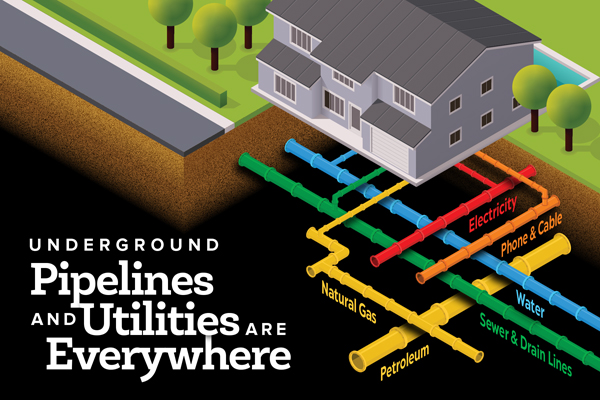- La Feria Community Holds Succesful Business Mixer Event
- Little Nashville to Take Place in Downtown Mercedes
- Lions Basketball Captures District Gold
- La Feria ISD Students Compete in Regional Chess Tournament
- Lions End First Half of 32-4A on a High Note
- La Feria ISD Held Another Successful Parent Conference
- Strong Appearance for Lions at Hidalgo Power Meet
- LFECHS Students Get to Meet Local Actress
- Students Participate in Marine Biology Camp
- Two LFECHS Students Qualify for All-State Band
What to Know Before Digging on Your Property
- Updated: August 14, 2015

(StatePoint) Each summer, many homeowners reach for their shovels and begin digging as part of landscaping and other home improvement projects. Whether you are a “do-it-yourselfer” or a professional excavator contracted for a project, it’s crucial to dig smart.
There are more than 100 billion feet of underground utilities in the United States, equating to more than one football field’s length of buried utilities for every person in the country, according to the Common Ground Alliance, an organization dedicated to protecting underground utility lines and the safety of people who dig near them. An underground utility line is damaged once every six minutes because someone did not call before digging.
August 11, (abbreviated 8/11 on the calendar) serves as a reminder to always call 811 in order to dig safely and lawfully. Whether you’re planting a tree, installing a fence, deck, swimming pool, or starting any other excavation project, it is essential to call 811 before digging to have the approximate location of underground utilities and pipelines marked.
Calling 811 is the law, and knowing where pipelines and underground utility lines are buried before you dig will help protect you, and those around you, from injury. It also helps prevent damage to utilities, service disruptions, potential fines and repair costs. Every digging job requires a call — even if you have called before for a similar project — because the depth of utility lines varies, and there may be multiple lines in a common area. Digging without knowing the approximate location of underground utilities increases the likelihood of unintentional damage.
What to Expect Calling 811
Your call will be routed to a local call center. An operator will gather information about your digging plans and notify local pipeline and utility companies about your project.
State laws vary regarding the amount of advance notice required to call and have lines marked. Most states require 48 to 72 hour advance notice (excluding weekends and holidays). An 811 representative in your area can provide specific information, or you can learn more at www.Call811.com.
Pipeline and utility representatives will be sent to mark the approximate location of underground utilities and cables using color-coded paint, flags or stakes so you know what’s below and are able to dig safely around them. If there are no underground utilities, pipelines or cables at your dig location, they will mark “clear.”
Planning a Digging Project
- Always call 811 before starting any digging project, regardless of the depth of your digging or your familiarity with the property.
- Plan ahead and allow ample time for lines to be marked. After you have waited the required time for markings in your state, if lines have not been marked, call 811 again to check the status of your request before digging.
- If a contractor has been hired, confirm that a call to 811 has been made. Don’t allow work to begin until lines have been marked.
- Consider moving the location of your project if it is near line markings.
Digging with care is critical for your safety, the safety of your community and the protection of the environment.


